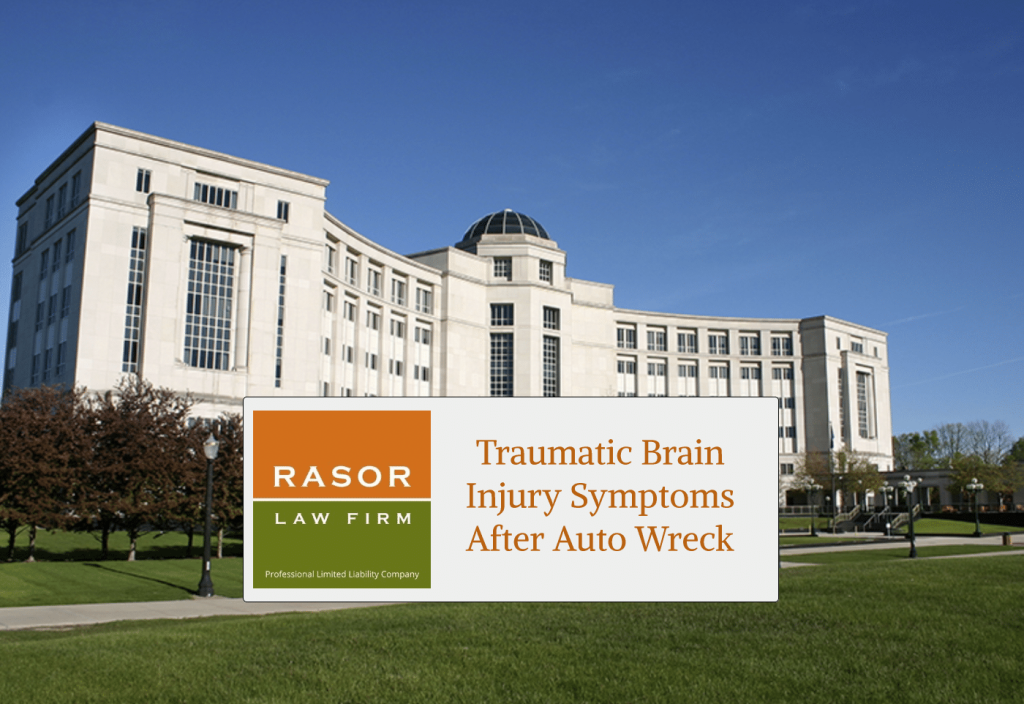Recovering from a car crash is difficult enough without the added complexity of a traumatic brain injury. Auto TBI Symptoms, or traumatic brain injury symptoms caused by automobile accidents, can be subtle at first but devastating over time. If you or someone you know was recently involved in an auto wreck and has since noticed changes in memory, balance, mood, or physical coordination, these could be signs of a TBI. The aftermath of such symptoms might not always show up immediately, making it even more essential to recognize the warning signs early. Many individuals suffer quietly, unaware that the dizziness, confusion, or persistent headaches they’re experiencing may be connected to a brain injury from the accident. Understanding the common Auto TBI Symptoms and taking prompt action can not only help with medical treatment but also support legal claims and compensation recovery. If you’re in Michigan and navigating these issues, this guide will help clarify your options and what steps to take next.
What exactly are Auto TBI Symptoms after a car crash
Auto TBI Symptoms refer to the physical, cognitive, and emotional effects that result from a traumatic brain injury sustained in a motor vehicle accident. These symptoms can range from mild to severe, depending on the nature of the crash and the part of the brain affected. Common signs include headache, dizziness, nausea, fatigue, problems with clarity of thought, and changes in personality or mood. It’s often difficult to identify a TBI immediately after an accident because the adrenaline and shock from the crash can mask symptoms for hours or even days.
For instance, someone involved in a minor rear-end collision may shrug off a sore neck and slight dizziness, not realizing it could be early signs of a concussion. In another example, a person may begin experiencing sleeping problems and memory lapses a week after being struck by a vehicle while walking—also potential signs of a TBI. Because traumatic brain injuries often don’t appear on standard imaging tests like an X-ray or CT scan, prompt medical evaluation and follow-up are essential. Educating yourself or your loved ones about Auto TBI Symptoms can make a significant difference in ensuring timely recovery and fair compensation following an accident.
Why recognizing Auto TBI Symptoms makes all the difference
The consequences of overlooking Auto TBI Symptoms can be severe. These injuries often require long-term therapy, specialized medical attention, and support networks. Recognizing and treating the symptoms early not only improves recovery outcomes but also strengthens any legal claims for damages. Unfortunately, many victims dismiss their symptoms as stress-related or temporary, leading to missed treatment windows and complications that could have been mitigated.
Moreover, the financial burden from these injuries can quickly escalate if not addressed. Medical bills, loss of income, and declined quality of life are all real risks associated with delayed diagnosis. Recognizing Auto TBI Symptoms early gives accident victims a fighting chance to not only heal but seek justice and support in a timely manner.
- A teenager injured in a rollover collision ignores headaches and fatigue, leading to cognitive decline that affects school performance and emotional well-being.
- A working professional downplays mood changes and sleep issues after being T-boned at an intersection, eventually losing their job due to poor focus and irritability.
- A retiree struck by a delivery truck begins experiencing vertigo and speech issues but delays seeking help. The untreated TBI leads to dependency on round-the-clock care.
What happens when Auto TBI Symptoms are evaluated in Michigan
- Step 1: After a crash, victims usually undergo an initial medical assessment at an emergency room or urgent care center. This includes basic neurological exams and sometimes imaging tests like CT scans.
- Step 2: If initial signs of a brain injury are detected, a referral is often made to a neurologist or neuropsychologist for specialized evaluation, which may include memory tests, balance assessments, and emotional screening.
- Step 3: Legal procedures can follow a confirmed TBI diagnosis. With the help of a personal injury attorney, victims can seek compensation for medical costs, lost wages, and pain and suffering under Michigan’s no-fault insurance laws.
Smart strategies to handle Auto TBI Symptoms
Michigan-specific questions about Auto TBI Symptoms, answered
How Rasor Law Firm provides guidance through recovery
At Rasor Law Firm, our experienced personal injury attorneys understand the complexity and sensitivity of traumatic brain injury cases. We have helped countless clients in Michigan navigate the confusing legal process that follows an auto accident involving a TBI. Our firm takes a compassionate and meticulous approach to every client, ensuring that their medical care is prioritized and their rights are protected. From gathering evidence and obtaining expert medical opinions to negotiating with insurance companies and filing lawsuits when necessary, we are by your side the entire time. We also understand that these cases are not just about paperwork—they are about restoring stability, health, and dignity to your life. With Rasor Law Firm, you can focus on healing while we handle the legal path to compensation.


